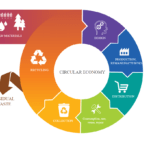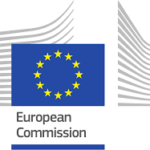The Council today gave its green light for stronger and wider road charging rules (Eurovignette directive) to incentivise cleaner and more efficient transport operations. The revised law includes a new scheme to address CO2 emissions to reduce transport’s carbon footprint in line with the European Green Deal and the Paris Agreement.
“These new road pricing rules and a new regime to tackle CO2 emissions are an important step forward in meeting the EU’s climate objectives. Boosting the use of the cleanest and most fuel-efficient vehicles will make transport more sustainable.”
Jernej Vrtovec, Slovenian Minister for Infrastructure, President of the Council
Main features of the revised rules
Distance-based tolls and time-based user charges (vignettes)
Time-based vignettes will be phased out for heavy-duty vehicles on the core TEN-T network within eight years of the entry into force of the directive. In cases where member states apply a common system of vignettes, such as the Eurovignette Treaty, they will have two additional years to adapt or discontinue that system.
The roads covered by the phasing-out represent the main routes where most international transit of commercial vehicles takes place. Member states may continue to apply vignettes on other parts of their network.
Exemptions to the phasing-out of vignettes are allowed in duly justified cases, such as in cases of low population density or where a vignette applies to a limited section of a road, after the Commission has been notified.
Member states will also have the option of setting up a combined charging system for heavy-duty vehicles, or for some types of heavy-duty vehicle, which would bring together distance- and time-based elements and integrate the two variation tools (the new one based on CO2 emissions and the existing one based on EURO classes). This system will allow full implementation of the ‘user pays’ and ‘polluter pays’ principles while allowing member states the necessary flexibility to design their own road charging systems.
As a basic principle of road charging, however, member states retain the freedom to apply tolls and user charges for different categories of vehicles, such as heavy-duty vehicles, heavy goods vehicles, coaches and buses, light-duty vehicles, light commercial vehicles, minibuses and passenger cars, independently of one another. For example, member states may decide not to charge buses at all.
Under the rules on the periods for which vignettes are valid, vignettes will also have to be made available for a day, and for a week or ten days or both. Nevertheless, member states may limit the use of the daily vignette to transit purposes only.
Greening of road charges
A new EU-wide tool will be introduced for varying infrastructure and user charges for heavy-duty vehicles based on CO2 emissions. The variation will be based on the existing CO2 standards.
Initially, the scheme will only apply to the largest trucks, but it can gradually be extended to other types of heavy-duty vehicle. It can also be regularly adapted to technological progress.
The text includes safeguards to ensure that hybrid vehicles are not rewarded twice and to avoid any possible overlaps of the CO2 variation with other carbon-pricing instruments.
Variation of tolls or user charges based on environmental performance will apply to vans and minibuses from 2026, where technically practicable.
External cost charge
External cost charging for air pollution will become mandatory for heavy-duty vehicles after a four-year transition period, where tolls are applied. However, member states will be allowed to not apply this charge, after notifying the Commission, if it would lead to diversion of traffic that would have unintended negative consequences. This mandatory charging will not affect the choice of the member states to apply an external-cost charge for CO2 emissions in any event.
Optional charging
Member states will use revenues generated by optional congestion charges, or their equivalent in financial value, to address congestion issues, or to develop sustainable transport and mobility in general. Specific provisions clarify when this obligation is deemed to be met where such revenues are allocated to the general budget.
In addition, the new rules will allow member states to apply a higher mark-up (up to 50%) to the infrastructure charge levied on specific highly congested road sections, if all affected member states agree.
Exemptions
The directive includes a number of exemptions to charging rules, concerning, for example, existing concession contracts, disabled persons and sparsely populated areas.
Procedure and next steps
Today’s vote means that the Council has adopted its position at first reading. The legal act now needs to be adopted by the European Parliament at second reading before being published in the EU Official Journal.
Leading up to today’s adoption by the Council, the negotiators from the Council and the European Parliament reached a political agreement on the proposal on 15 June 2021. The Council’s Permanent Representatives Committee (Coreper) approved the agreement on 30 June 2021.
The directive will enter into force 20 days after its publication. Member states will have two years from the entry into force of the directive in which to incorporate the provisions into their national law.
Background: EU road charging rules
Road charging is a national choice in the EU, and member states can choose whether or not to introduce it on their territory. However, if they do opt to levy charges, they must follow certain common rules laid down in the Eurovignette directive. The aim of this is to ensure that the imposition of road charges does not discriminate against international traffic or result in the distortion of competition between transport operators.
The Commission presented the proposal for a revised Eurovignette directive in May 2017, as part of the first mobility package.







Leave a Reply